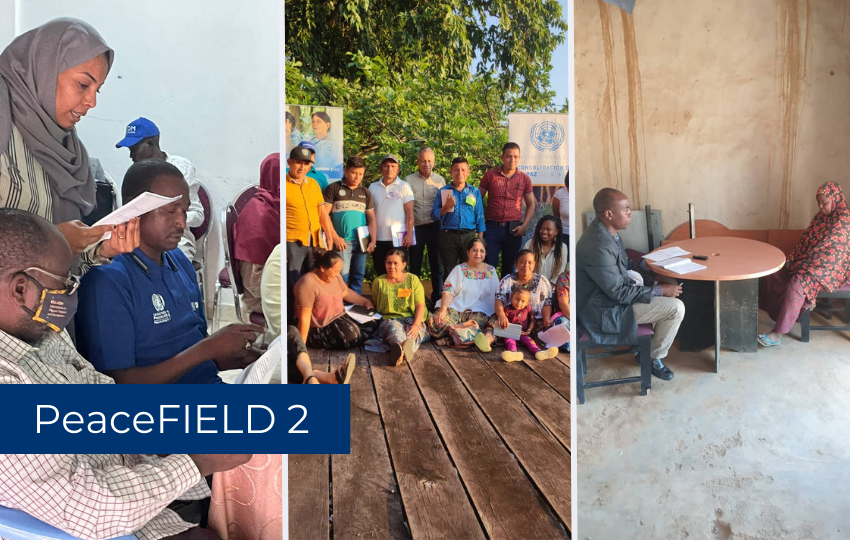Project Background
More than a quarter of the world’s population live in fragile contexts, with estimates suggesting that by 2030, over 80 per cent of people living in poverty will be in fragile contexts.
Compounded by the effects of climate change and natural disasters, there is a high risk that these situations could become both more unstable and more impoverished. This interlinked peace and development challenge has resulted in a realignment of aid investments among some key donors, with major players significantly increasing their assistance to these environments, including calls to increase spending to $100bn in coming years.
Despite claims that peacebuilding programs are a “proven investment”, evidence on what works, how it works and – often – on how it is expected to work is incomplete.
While at the macro-level, it is possible to draw positive links between aid and conflict reduction indicators, less information is available at the level of individual programs or program typologies. In turn, robust guidance on what should be supported and in which scenarios remains scant.
Prior work has tended to focus on specific programmes and outcomes, rather than aim to provide structured evidence across mainstream peacebuilding scenarios. Knowledge gaps remain across key intervention typologies and on the indicators these interventions can expect to influence, as well as on evidence across the key approaches that undergird the “standard treatment” used in fragile and conflict-affected places. Key methodological gaps also exist, particularly for working in complicated scenarios or on projects that follow the standard roll-out designs required to build peace.
Project Objectives
PeaceFIELD2 continues the work of the PeaceFIELD Initiative towards closing these key knowledge gaps. Specifically, that there are key knowledge gaps at the heart of the field, with scant knowledge available to program designers regarding what works and in which circumstances.
By conducting a range of impact evaluations on common pro-peace interventions, like land reform, the project aims to create direct, timely, and replicable knowledge-based recommendations on which interventions should be supported. More generally, the aim of PeaceFIELD2 is to establish long-term systematic change in how project partners approach advanced learning. This will allow the project to bring top quality, gold standard methodologies – including new methodological developments – to this field, to answer new research questions and to address new programmatic typologies and outcome indicators.
Working closely with our partners, we will build evaluation capacity. In combination, this work will enhance current and future knowledge generation. In this sense, the project is designed to build peace.
This work is conducted with the short-term aim of closing key knowledge gaps in the field; and in the longer-term, to promote the generation of demand-driven advanced learning at program and strategic levels.
Project Details
- Project Year/s: 2023 · 2024
- Donors: German Federal Foreign Office (Auswärtiges Amt)
- Partner/s: 3ie · UN Peacebuilding Fund
- Region/s: Latin America & Caribbean · Sub-Saharan Africa
- Theme/s: Capacity Building · Impact Evaluation · Individual Decision-making · Micro-Data Collection · Violence & Peacebuilding
- Research Topic/s: Conflict Measurement · Institutions & Fragility · Peacebuilding & Reconstruction · Social Cohesion · Violence & Conflict








